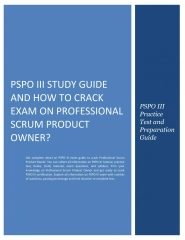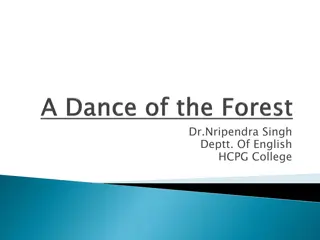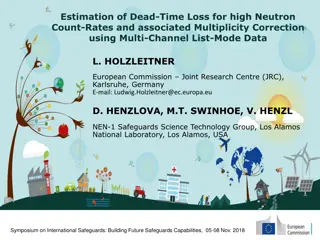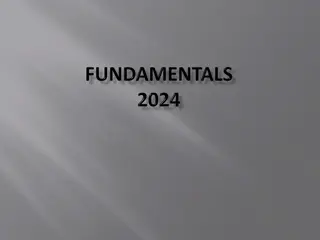
Understanding Title Passing in Land Ownership in Georgia
Explore the complexities of title passing in land ownership in Georgia, from wills and survivorship estates to statutory joint tenancy. Learn how ownership is transferred and the implications for property inheritance.
Download Presentation

Please find below an Image/Link to download the presentation.
The content on the website is provided AS IS for your information and personal use only. It may not be sold, licensed, or shared on other websites without obtaining consent from the author. If you encounter any issues during the download, it is possible that the publisher has removed the file from their server.
You are allowed to download the files provided on this website for personal or commercial use, subject to the condition that they are used lawfully. All files are the property of their respective owners.
The content on the website is provided AS IS for your information and personal use only. It may not be sold, licensed, or shared on other websites without obtaining consent from the author.
E N D
Presentation Transcript
Welcome to Fidelitys Fifteen Minute University
2 The Seller is Dead ~ ~ What Are We Supposed To Do Now? ~ Part III
3 Of course, the Seller is not really a dead person.
What that really means is that the title is held in an estate because the FORMER owner, 4
5 the person who came back on the title report as the RTV,
6 has passed on to his reward, but no one let you know until the last minute.
7 In Georgia, there are four ways that title can pass when someone dies owning land.
8 1. Devise - Testate Succession 2. Inheritance - Intestate Succession 3. Survivorship 4. Year s Support
9 So, your first question is: Did the decedent leave a Will?
10 But perhaps your first thought should be: Did the decedent hold title in a survivorship estate?
11 Survivorship
12 Survivorship Statutory Joint Tenancy Joint Life Estates with Cross-Contingent Remainders
Statutory Joint Tenancy - O.C.G.A. 44-6-190 13 (a) Deeds and other instruments of title, including any instrument in which one person conveys to himself and one or more other persons, any instrument in which two or more persons convey to themselves or to themselves and another or others, and wills, taking effect after January 1, 1977, may create a joint interest with survivorship in two or more persons. Any instrument of title in favor of two or more persons shall be construed to create interests in common without survivorship between or among the owners unless the instrument expressly refers to the takers as jointtenants, joint tenants and not as tenants in common, or joint tenants with survivorship or as taking jointly with survivorship. . . .
Joint Life Estates With Cross-Contingent Remainders 14 Under old English common law, a deed to two persons automatically created a joint tenancy with a right of survivorship. Early in Georgia history the Georgia legislature passed a bill that did away with the common law joint tenancy, so that a deed to two persons created a tenancy in common. For many years it was not possible in Georgia to have joint tenancy with survivorship. And so, some clever lawyer came up with a way to create estates in land with a survivorship feature. It operates like functional equivalent to a joint tenancy with survivorship except that this type of survivorship is not destructible.
Joint Life Estates With Cross-Contingent Remainders 15 The wording that creates this is: . . . unto the said Grantees as tenants in common, for and during their joint lives, and upon the death of either of them, then to the survivor of them, in fee simple, . . .
Joint Life Estates With Cross-Contingent Remainders 16 The wording that creates this is: . . . unto the said Grantees as tenants in common, for and during their joint lives, and upon the death of either of them, then to the survivor of them, in fee simple, . . .
Joint Life Estates With Cross-Contingent Remainders 17 The wording that creates this is: . . . unto the said Grantees as tenants in common, for and during their joint lives, and upon the death of either of them, then to the survivor of them, in fee simple, . . .
Joint Life Estates With Cross-Contingent Remainders 18 The wording that creates this is: . . . unto the said Grantees as tenants in common, for and during their joint lives, and upon the death of either of them, then to the survivor of them, in fee simple, . . . Each of the grantees receives a life estate.
Joint Life Estates With Cross-Contingent Remainders 19 The wording that creates this is: . . . unto the said Grantees as tenants in common, for and during their joint lives, and upon the death of either of them, then to the survivor of them, in fee simple, . . . Each of the grantees receives a life estate. But then the wording continues to say that when one of them dies, the one that did not die, the survivor of them, gets the remainder interest.
The survivor has a title that is: 20 Fee Simple Is acquired automatically without having to go through the estate of the deceased tenant. Free of debts and liens against the decedent.
21 PRACTICE POINT: CAUTION: IF YOU TAKE A DEED OR SECURITY DEED FROM ONLY ONE OF THE TWO TENANTS IN A SURVIVORSHIP ESTATE, THEN: If the other tenant dies, the grantee has the fee simple. But, if the grantor dies, the grantee has nothing.
Joint Life Estates With Cross-Contingent Remainders 22 The wording that creates this is: . . . unto the said Grantees as tenants in common, for and during their joint lives, and upon the death of either of them, then to the survivor of them, in fee simple . . . Each of the grantees receives a life estate - and a contingent remainder. Then the wording continues to say that when one of them dies, the one that did not die, the survivor of them, gets the remainder interest. When the survivor gets the remainder interest, it merges with the life estate that the survivor already has, and becomes a full fee simple.
23 If the answer is No, there was no survivorship feature, the next question is: Has anyone filed any proceedings in the probate court?
Proceedings that may be filed in the Probate Court: Proceedings that may be filed in the Probate Court: 24 Petition for Order that No Administration Is Necessary Petition for Year s Support
25 If nothing has been filed in the probate court, advise the parties that they will have to do so.
26 BUT- CAN T WE JUST DO AFFIDAVITS OF DESCENT AND SKIP FILING IN THE PROBATE COURT?
IF THE DECEDENT HAS NOT BEEN DEAD FOR A LONG TIME, UNFORTUNATELY, WE CANNOT SKIP FILING IN THE PROBATE COURT. 27
FIRST - Because, heirs take title subject to the claims against the estate. If there has been no probate court proceeding to resolve claims against the estate 28
29 A purchaser from the heirs cannot obtain from the heirs any better title than the heirs have, or in other words, a title subject to the claims against the estate.
30 ALSO Because, under O.C.G.A. 53-5-4:
PER O.C.G.A. 53-5-4. 31 An executor acting under or any person claiming under a will offered for probate within the period described in Code Section 53-5-3 shall be permitted to recover from a bona fide purchaser for value:
PER O.C.G.A. 53-5-4. 32 An executor acting under or any person claiming under a will offered for probate within the period described in Code Section 53-5-3 shall be permitted to recover from a bona fide purchaser for value:
PER O.C.G.A. 53-5-4. 33 An executor acting under or any person claiming under a will offered for probate within the period described in Code Section 53-5-3 shall be permitted to recover from a bona fide purchaser for value:
PER O.C.G.A. 53-5-4. 34 An executor acting under or any person claiming under a will offered for probate within the period described in Code Section 53-5-3 shall from shall be permitted to recover from a bona fide purchaser for value be permitted to recover a bona fide purchaser for value: :
SHALL THEY be permitted to recover from bona WHAT SHALL be 35 permitted to recover from a a bona fide purchaser for fide purchaser for value? value?
(1) Property acquired from the heirs of the testator or anyone claiming through them, unless an order that no administration is necessary was entered prior to the purchase and the purchase occurred prior to the probate of the will; 36
(1) Property acquired from the heirs of the testator or anyone claiming through them, unless that no administration is necessary was entered prior to the purchase and the purchase occurred prior to the probate of the will; 37 unless an order
What does this mean? 38 IF an order that no administration is necessary was entered prior to the purchase and the purchase occurred prior to the probate of the will; THEN if you buy from the heirs THE EXECUTOR CANNOT TAKE THE PROPERTY BACK.
39 (2) Property set aside in a year's support proceeding and acquired from the spouse or children of the testator or anyone claiming through them, unless the order granting year's support was entered prior to the purchase and the purchase occurred prior to the probate of the will; and
40 (2) Property set aside in a year's support proceeding and acquired from the spouse or children of the testator or anyone claiming through them, unless the order granting year's support was entered prior to the purchase and the purchase occurred prior to the probate of the will; and
41 (2) Property set aside in a year's support proceeding and acquired from the spouse or children of the testator or anyone claiming through them, unless entered prior to the purchase and the purchase occurred prior to the probate of the will; and unless the order granting year's support was
42 What does this mean? IF the prior to the purchase and the purchase occurred prior to the probate of the will THEN if you buy from the widow or children (under court order or after they come of age) THE EXECUTOR CANNOT TAKE THE PROPERTY BACK. the order order granting year's support was entered
43 (3) Property acquired from the administrator of the testator's estate or the heirs of the testator or anyone claiming through them, unless the administrator was qualified prior to the purchase and the purchase occurred prior to the probate of the will.
44 (3) Property acquired from the administrator of the testator's estate or the heirs of the testator or anyone claiming through them, unless the administrator was qualified prior to the purchase and the purchase occurred prior to the probate of the will.
45 (3) Property acquired from the administrator of the testator's estate or the heirs of the testator or anyone claiming through them, unless the administrator was qualified prior to the purchase and the purchase occurred prior to the probate of the will.
What does this mean? 46 IF the administrator was qualified prior to the purchase and the purchase occurred prior to the probate of the will. THEN if you buy from the administrator of the testator's estate or the heirs of the testator or anyone claiming through them, THEN THE EXECUTOR CANNOT TAKE THE PROPERTY BACK.
53-5-3. Time within which will to be offered for probate A will shall not be offered for probate following the expiration of five years from the latest date on which a petition is filed for: (1) The appointment of a personal representative of the decedent's estate; or (2) An order that no administration is necessary on the decedent's estate; . . . 47
48 Year s Support
53 surviving spouse and minor children 53- -3 3- -1. Preference before other debts; entitlement of surviving spouse and minor children 1. Preference before other debts; entitlement of 49 (a) As used in this chapter, the terms child or children mean any minor child who would be entitled to inherit if the child's parent died intestate. (b) Among the necessary expenses of administration and to be preferred before all other debts, except as specifically provided otherwise in this chapter, is the provision of year's support for the family. (c) The surviving spouse and minor children of a testate or intestate decedent are entitled to year's support in the form of property for their support and maintenance for the period of 12 months from the date of the decedent's death.
53-3-2. When year's support barred 50 a) A surviving spouse's right to year's support shall be barred by the marriage or death of the spouse prior to the filing of the petition for year's support. a) A minor child's right to year's support shall be barred by the marriage or death of the minor or by the minor's attaining the age of 18 years prior to the filing of the petition for year's support.






![READ⚡[PDF]✔ Yup I'm Dead...Now What? The Deluxe Edition: A Guide to My Life Info](/thumb/20463/read-pdf-yup-i-m-dead-now-what-the-deluxe-edition-a-guide-to-my-life-info.jpg)















